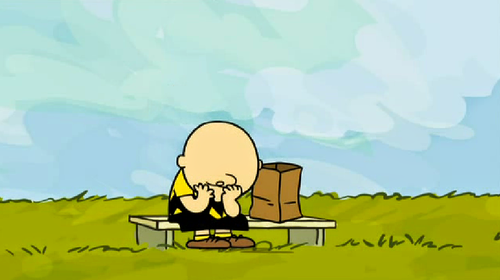
DOC TALK: Identifying Stress in Children
Talia Filippelli is a psychotherapist, certified holistic health coach and certified personal trainer. She has been featured on CBS News as a mental health expert and was voted one of NJ Family Magazine’s Top Kids Docs. Her practice – Starr Therapy – is located at 306 Washington Street, Suite 202, right here in Hoboken.
 Q: How do I know if my kids are stressed out?
Q: How do I know if my kids are stressed out?
As adults, we have the tendency to minimize or disregard stress in children and teens. Maybe you’ve said something like this: “You have a lot of homework, so what! When I was your age…”
The fact that kids cry hysterically when you drop them off at school, get frustrated during a game, or go through those dramatic tween years when your son or daughter has a new best friend every week, all seem to be part of the normal childhood experience. But if you dismiss those experiences as “normal” without looking at them closer, you child may be at-risk for developing a lifelong struggle with managing stress.
According to the National Alliance on Mental Illness, 80% of kids and teens with mental disorders don’t receive treatment. Yikes! This is not meant to scare you, but to give you a clearer understanding that stress doesn’t begin in adulthood.
The truth is, we aren’t born with the skills to cope with feelings such as sadness, anxiety and fear. But we can develop them. Here are a few tips to help you raise emotionally intelligent children.
First, know what you’re looking for:
Depression: look for irritable mood, anger, dropping grades in school
Anxiety: look for clinginess and chronic complaints of stomachaches and headaches
Fear: look for argumentative behavior and disrupted sleep patterns
Next, don’t overdo your approach:
- Practice W.A.I.T.: Why Am I Talking? Follow a ratio of listening 4 times more than you speak.
- Avoid hyper-parenting: being overly involved, overly controlling, overly stimulating AKA “Helicopter Mom and Dad”
Lastly, give your kids some useful tools:
- Teach them to compartmentalize – break down major goals into smaller, more manageable tasks
- Ask them to share a rose and a thorn everyday – talk about one positive thing (rose) and one negative thing (thorn) that occurred during that day.
Remember, kids are amazingly resilient. Let’s make sure we arm them with the proper tools to deal with life’s curveballs, even if their version of a curveball is being left out during recess. And if you find you could use backup, call us for a free phone consultation at 201-218-7431 to get your children leading healthier and happier lives.
Have a personal question you’d like answered? Email Talia at talia@starrpsych.com.
Website: www.StarrTherapy.com
FaceBook: www.facebook.com/StarrPsych
Twitter: @StarrPsych


 Previous Article
Previous Article Next Article
Next Article THE PIPES, THE PIPES ARE CALLING: Hoboken Looking For New Answers to Age-Old Questions About Water Infrastructure
THE PIPES, THE PIPES ARE CALLING: Hoboken Looking For New Answers to Age-Old Questions About Water Infrastructure  PIZZA HISTORY: Grimaldi’s Clinton Street Closing Due to Rent Hike
PIZZA HISTORY: Grimaldi’s Clinton Street Closing Due to Rent Hike  Putting Hoboken on the Map—Should NYC Have to Publicly Acknowledge the Existence of NJ?
Putting Hoboken on the Map—Should NYC Have to Publicly Acknowledge the Existence of NJ?  JERSEY FRESH: Halifax and Harvest Drop Present 4-Course Farm-to-Table Dinner | TONIGHT
JERSEY FRESH: Halifax and Harvest Drop Present 4-Course Farm-to-Table Dinner | TONIGHT  Fridays Are For Frank: “In the Cool, Cool, Cool of the Evening” / Sinatra Idol — THURSDAY, JUNE 9th
Fridays Are For Frank: “In the Cool, Cool, Cool of the Evening” / Sinatra Idol — THURSDAY, JUNE 9th  Touring the Stevens Family Legacy
Touring the Stevens Family Legacy  5K Run/Walk to Break the Silence on Ovarian Cancer — SATURDAY @ Liberty State Park
5K Run/Walk to Break the Silence on Ovarian Cancer — SATURDAY @ Liberty State Park  OUT OF THE DARKNESS: Walk to Prevent Suicide — SUNDAY, OCTOBER 29 @ STEVENS
OUT OF THE DARKNESS: Walk to Prevent Suicide — SUNDAY, OCTOBER 29 @ STEVENS